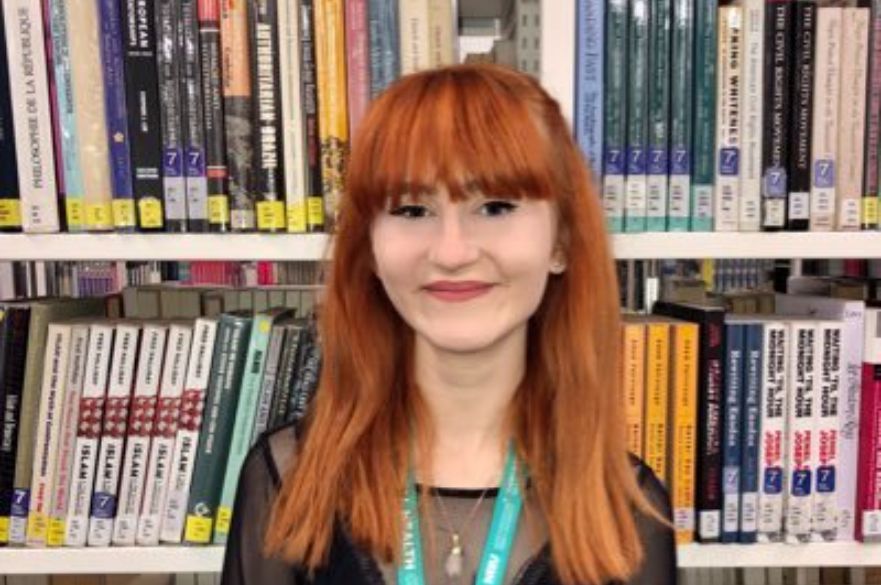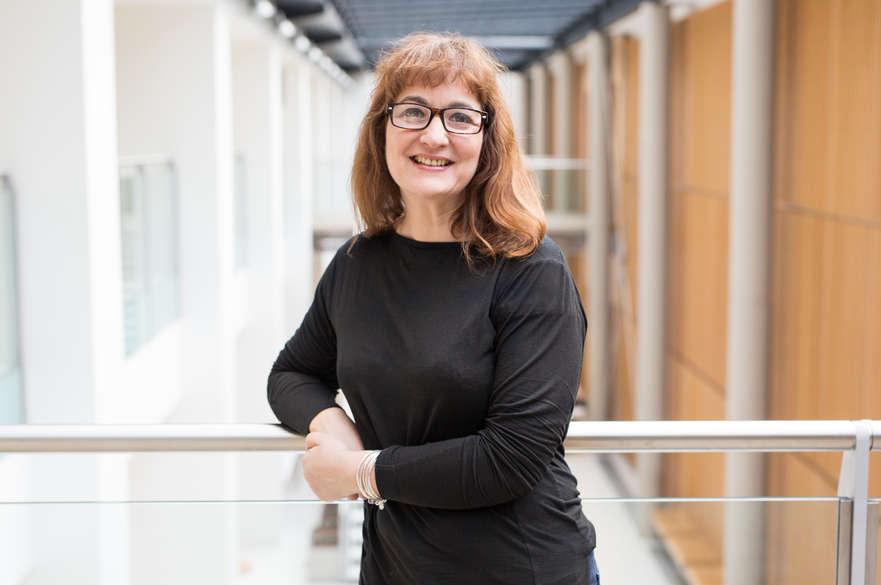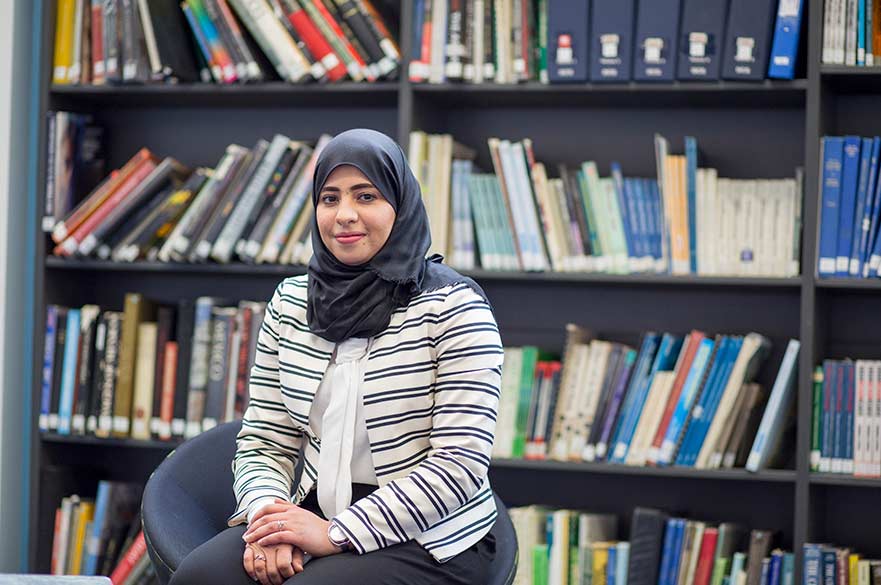
My awareness of how helpful the English department is and the sustainable culture at NTU made my decision to research there easy.
More about Olivia
‘I applied to NTU after I saw the variety of genres and contexts offered across the modules.’
I moved from my hometown in Lincoln to Nottingham in 2016 to start my undergraduate degree in English, before undertaking my Master of Research degree in English Literary Research just prior to the start of the pandemic. I applied to NTU after I saw the variety of genres and contexts offered across the modules. After following a pre-established programme of study in secondary education I was eager to choose a flexible course, where I could choose my modules based on my own interests. Once I reached my third year of the degree and I had chosen my dissertation topic, on confessional poetry, I identified the area of literature that I would like to specialise in. From the undergraduate course, I achieved first-class honours and was awarded the Michael Klein Prize for the Best Student in American Literature. I continued to pursue researching American Literature during the English Literary Research course, where I was able to design a larger project and a theoretical essay. My time at NTU, prior to the start of my doctoral research, prepared me well through opportunities such as volunteering for Penguin Random House and doing a placement with Nottingham UNESCO City of Literature. This background gave me the skills and confidence to continue with my studies and gain experience that will be vital to my career progression.
‘My awareness of how helpful the English department is and the sustainable culture at NTU made my decision to research there easy.’
English has been my favourite subject for as long as I can remember and after five years of studying the subject at NTU, I knew it would be the right place to continue my studies. During my undergraduate degree, there was a module on American literature that immediately piqued my interest and exposed me to a range of literature and cultural movements I was previously unaware of. In both my first year and during my Master of Research degree, I also got to establish and develop my knowledge of ecocriticism, which showed me how I could combine my interest in American literature with environmental theory. My awareness of how helpful the English department is and the sustainable culture at NTU made my decision to research there easy.
‘The studentship helped relieve the pressure of funding and gave me the motivation to make the most of the opportunity to study.’
NTU has been hugely supportive since I started my education at the university in 2016. When I got the news that I had been awarded the PhD studentship, I was overjoyed and very relieved. The studentship provided me with both my tuition fees and a stipend, which was a wonderful show of faith in my research and a reassuring prospect for when I started my studies. It can be intimidating when you start such an extensive project, but the studentship helped relieve the pressure of funding and gave me the motivation to make the most of the opportunity to study. The training sessions offered by the Doctoral School and the regular meetings with my supervisory team ensure that I am prepared to undertake my research and work on my career progression. NTU has given me the information and resources to get involved with the research culture both internally and externally, and as a result, I have had the opportunity to take part in many opportunities. For example, my Director of Studies informed me about a conference in my field, so I applied with an abstract and got accepted to form part of a panel. I was lucky enough to receive funding to support my travel costs after making an application to Arts and Humanities. This supported me in building my academic network as I was able to attend in person rather than present online and engage in the opportunity to network during breaks at the event.
‘I intend to pursue a career as a lecturer in English.’
Once I complete my studies at NTU, I intend to pursue a career as a lecturer in English. Through the workshops offered by the doctoral school and after hopefully gaining some teaching experience and research published, I hope I will then be in a good position to work toward that career.
‘I think it is worthwhile to revisit past women writers through a contemporary lens in order to make their voices heard the way they would not have been originally.’
I chose to work on two subjects that are really important to me, which are women’s writing and ecology. While women writers can now publish a lot more freely, I think it is worthwhile to revisit past women writers through a contemporary lens in order to make their voices heard the way they would not have been originally. My decision to base my research on ecology was informed by the climate crisis and it is my hope that my research will restore some power to both women and the environment. Feminism and environmentalism will always be important subjects and I hope that my research fosters productive discussion on how we can better treat the environment and how past women writers can guide us.
‘The sense of community at NTU is nurturing and inspiring.’
Though there are many, if I had to pick a highlight from studying at NTU then it would have to be my experience in seminars and with the lecturers. My previous experience in education was not entirely positive and I didn’t get the encouragement I needed but at NTU I have always felt supported because the English department is always happy to discuss things further and give you specifics about what you do well at and what can be improved. I think it is important to have guidance from people who encourage you to think creatively and remind you why you are so passionate about your subject. The sense of community at NTU is nurturing and inspiring, which is why I have chosen to remain with the university as I progressed from my undergraduate degree to my doctoral research.
The School of Social Sciences offer opportunities for postgraduate study leading to a PhD, by both full-time and part time study, across a wide range of disciplines.
Still need help?
-

STUDENT PROFILE
Jean Morris
Research degrees in Arts and HumanitiesUnited Kingdom
https://www.ntu.ac.uk/study-and-courses/courses/our-students-stories/arts-humanities/jean-morris
-

STUDENT PROFILE
Ramisha Rafique
United Kingdom
https://www.ntu.ac.uk/study-and-courses/courses/our-students-stories/arts-humanities/ramisha-rafique2
-

STUDENT PROFILE
Amal Hanashi
MA Teaching English to Speakers of Other Languages (TESOL)Oman
https://www.ntu.ac.uk/study-and-courses/courses/our-students-stories/arts-humanities/amal-hanashi